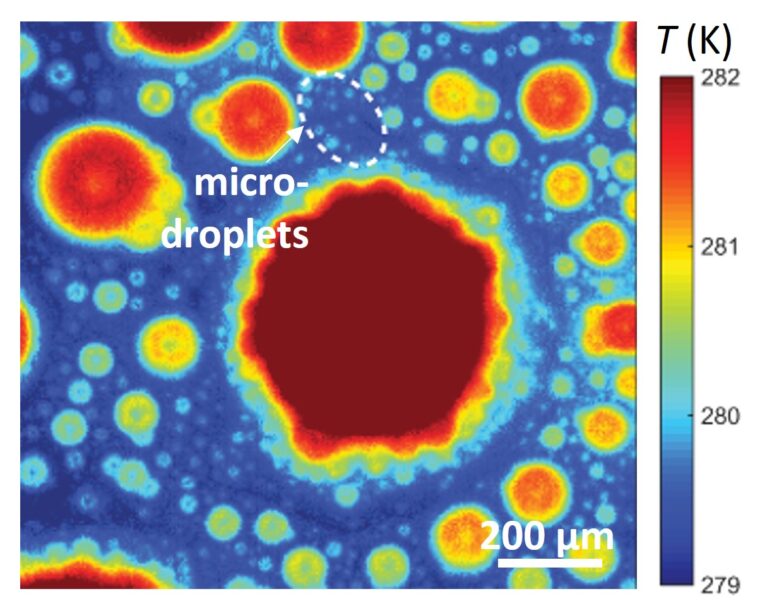
To combat climate change, Patricia Weisensee, an assistant professor of mechanical engineering and materials science at the McKelvey School of Engineering at Washington University in St. Louis, is working to increase energy efficiency, particularly in power generation, air conditioning and refrigeration systems.
Weisensee won a $351,971 grant from the National Science Foundation to support a new study of condensation in fluid refrigerants. By determining the conditions necessary for these fluids to condense into droplets, rather than films, Weisensee aims to increase heat transfer rates in refrigerant mixtures. Better heat transfer leads to increased efficiencies in applications such as power plants and savings in energy normally lost as waste heat.
"I'm interested in low-temperature waste heat recovery, where you actually produce electricity from low-temperature heat sources around 150 degrees Celsius or lower," Weisensee said. "You can't really use water for that. Its thermodynamic properties aren't very good in that temperature range."
However, nonaqueous fluids used as refrigerants have low surface tension, which causes them to condense as a film, creating thermal resistances in the system and leading to poor thermal performance.






